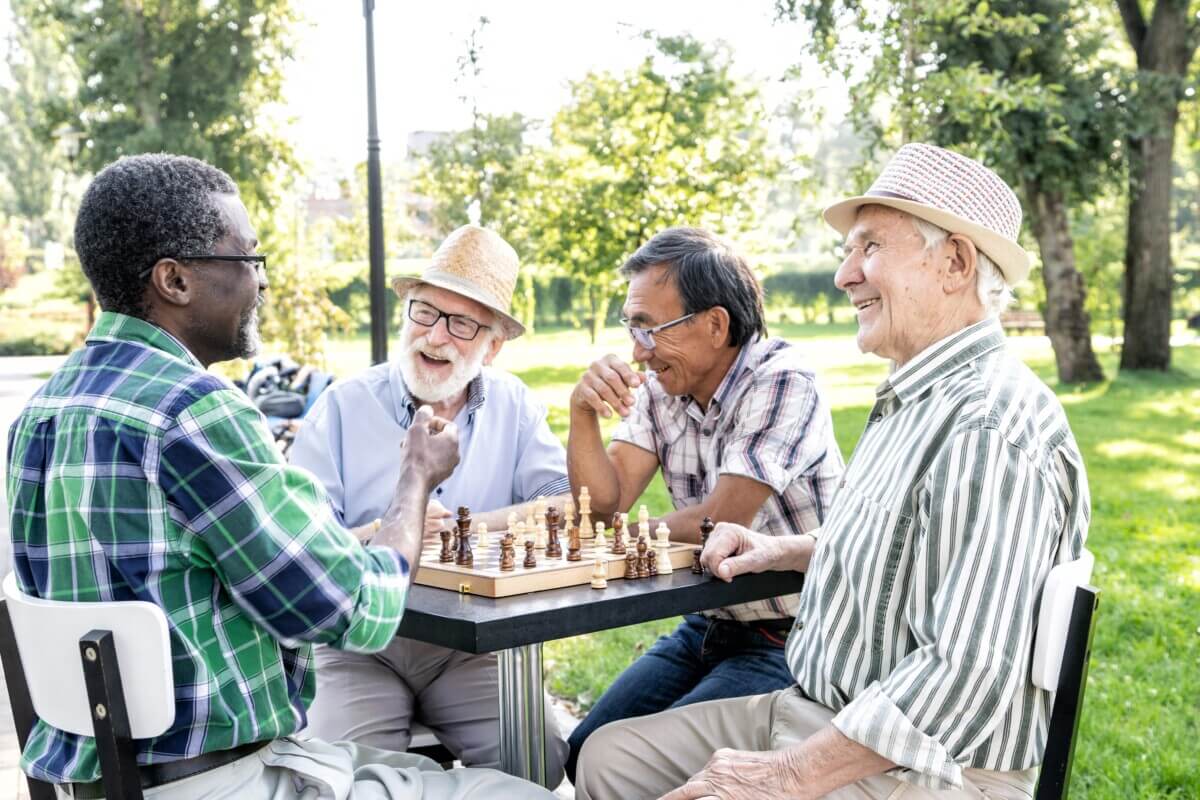
(Credit: oneinchpunch/Shutterstock)
Mental processing slows with aging. Solving a problem takes longer, but older adults eventually find a solution. It may take longer to remember a name, and an elderly person may be a bit more forgetful. However, giving some content to a name or event will speed up recall.
Not everyone loses cognitive ability at the same rate. Someone who’s had a past head injury, small strokes, or other conditions affecting the brain may lose more acuity or lose it faster than someone without complicating factors.
Despite this seemingly dire forecast for old age, there’s a fun and painless way to counteract that natural slowing of problem-solving and recall: brain training games (BTGs). Here’s how they can help:
First, it’s important to know if you’re dealing with just a natural process. If any of the following signs and symptoms are present, see a physician; the problem may be dementia:
- Difficulty finding the right word
- Disruptive memory loss – usually a friend or family member will notice this before the person of concern
- Loss of spatial abilities – e.g., getting lost while driving to familiar places
- Difficulty planning and organizing
- Feeling confused or disoriented
- Changes in personality or mood – agitation, anxiety, or paranoia
How BTGs help preserve cognition
Brain games can help keep your brain sharp by:
- Stimulating and challenging key parts of the brain – reasoning, logic, visual perception, attention, and flexibility
- Exposing you to novel stimuli, which enhances memory and cognition
- Providing cognitive stimulation
- Enhance focus
- Encourage mindfulness and presence in day-to-day activities because they require attention and mental effort, which improve overall function
Choose games that continually increase in difficulty and variety to keep your mind actively engaged. Varying routines and tasks can also help stimulate distinct parts of your brain. Aim for sessions of 15 to 30 minutes, several times weekly, on different days.
Types of brain games
There is a virtually limitless variety of brain game formats to engage your cognition and memory. Board games have nostalgic value and often involve multiple strategies. Memory games help you focus on acquired information. Word games provide an interactive experience, and trivia games encourage recall.
Research shows that video games can significantly enhance cognitive health among older adults. The National Institute on Aging conducted a study with individuals between 60 and 80 years-old using the three-dimensional game Super Mario, the two-dimensional game Angry Birds, and the classic card game Solitaire. Participants played these games up to 45 minutes per day for four weeks during a series of memory tests. After only two weeks of engaging in Angry Birds and Super Mario, recognition memory improved significantly.

Brain Games to Stay Sharp
- Scrabble is great for increasing brain power. It’s also a great way to expand your vocabulary.
- Solitaire helps train your brain to notice patterns and exercise your memory.
- Checkers is helpful for people looking for less strategy and more simple hand-eye coordination and logic.
- Chess is far more strategic than checkers, and it challenges the brain to think ahead and predict outcomes. You can challenge another person, your computer, or online players to a game.
- Crossword puzzles provide cognitive stimulation. Doing crossword puzzles as a regular activity can improve the ability to focus on desired tasks and memory capacity in older adults. One study showed that individuals who do crossword puzzles regularly can have cognitive function 10 years younger than their actual age.
- Sudoku is excellent for keeping your mind sharp by engaging logical thinking skills. It exercises the frontal lobe – responsible for manipulating letters and numbers – and other parts of the brain that are not used regularly. It helps individuals keep their minds active in sequential thinking, problem-solving, and planning.
- Nintendo Wii is a home video game console for active gaming and fitness games. They get players up and moving, and Wii games are very popular across generations. Games include options such as tennis, bowling, baseball, and Wii Fit.
- Brainwell Mind Brain Training is a free app with games that train and aid the brain in building memory, attention, and critical-thinking skills. Players get three new games daily to stay engaged, but there is also a premium plan that provides access to more than 50 cognitive training games that stimulate attention, memory, problem-solving, and other cognitive functions.
- Language learning games can help build your brain's ability to process and recall new information faster.
- Puzzles, such as jigsaws, cryptograms, or math puzzles, improve short-term memory, as well as boost processing speed and pattern recognition.
- Escape rooms provide dual-tasking — simultaneous physical and cognitive training activities. They also progressively increase the cognitive load with distractions and the pressure of limited time, which can be of significant additional benefit. The social connections also yield resilience.
Brains need more stimulation and regular maintenance to retain cognitive abilities as we age, which is why many seniors may benefit from brain games. Any of the above games will challenge the brain and make use of various cognitive functions.










